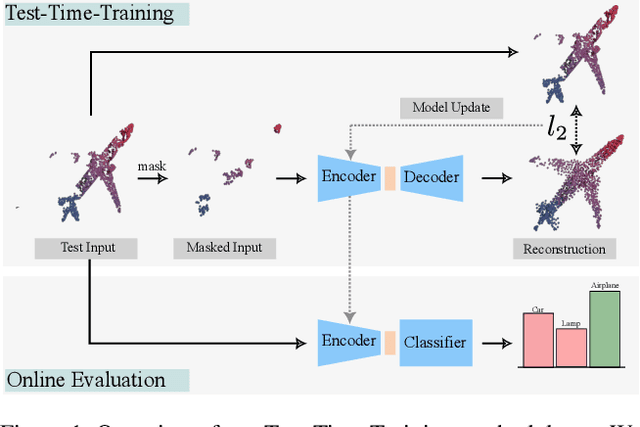Andreas Schriebl
MATE: Masked Autoencoders are Online 3D Test-Time Learners
Nov 24, 2022



Abstract:We propose MATE, the first Test-Time-Training (TTT) method designed for 3D data. It makes deep networks trained in point cloud classification robust to distribution shifts occurring in test data, which could not be anticipated during training. Like existing TTT methods, which focused on classifying 2D images in the presence of distribution shifts at test-time, MATE also leverages test data for adaptation. Its test-time objective is that of a Masked Autoencoder: Each test point cloud has a large portion of its points removed before it is fed to the network, tasked with reconstructing the full point cloud. Once the network is updated, it is used to classify the point cloud. We test MATE on several 3D object classification datasets and show that it significantly improves robustness of deep networks to several types of corruptions commonly occurring in 3D point clouds. Further, we show that MATE is very efficient in terms of the fraction of points it needs for the adaptation. It can effectively adapt given as few as 5% of tokens of each test sample, which reduces its memory footprint and makes it lightweight. We also highlight that MATE achieves competitive performance by adapting sparingly on the test data, which further reduces its computational overhead, making it ideal for real-time applications.
 Add to Chrome
Add to Chrome Add to Firefox
Add to Firefox Add to Edge
Add to Edge